∆•10:----POISON DART FROG----√√√
.jpg)
Most of the animals on this list are venomous, meaning they transfer toxins to their predators or prey via injections, like bites or stings. However, poison dart frogs, as their name suggests, are actually poisonous, meaning that their typical mode of toxin delivery is through ingestion.
.jpg)
But these colorful frogs don’t actually make their poison themselves. In fact, they steal their poison from the “creepy-crawlies” they eat, like ants and centipedes. Once the frogs eat their fill, they secrete the repurposed toxins through their brightly colored skin, helping to ward away predators.
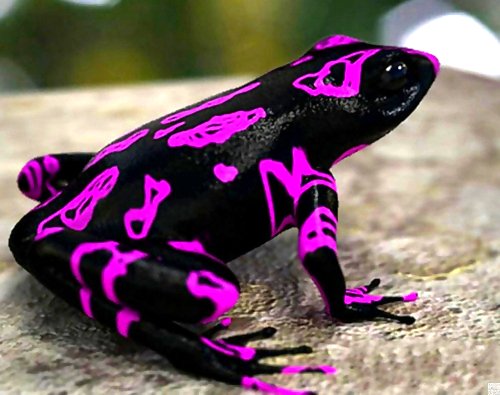
So how are these frogs helping with medical research?
.jpg)
One species in particular, Epipedrobates tricolor, has been useful in creating a non-opioid analgesic.[1] In layman’s terms, this means that the toxins produced by this particular species of frog have been studied, modified, and synthesized to make a nonaddictive painkiller named “epibatidine” after the frog.
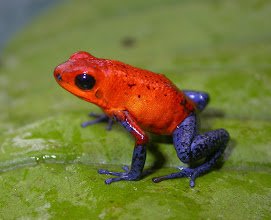
But you probably will not be getting a prescription for two frogs every four hours from a doctor anytime soon. Epibatidine was still toxic to rats even at low, therapeutic doses, so the drug was discontinued.

Another family of frog, Dendrobatidae, has shown promise in research on appetite suppressants, muscle relaxants, and heart stimulants. So our froggy friends might still make an appearance in our medicine cabinets one day.
∆•9:----SEA ANEMONE----√√√
.jpg)
Almost all of us are somewhat familiar with sea anemones, if only because of Pixar’s Finding Nemo. In the movie, both clownfish, Marlin and Nemo, call a sea anemone home because they are immune to its venom and their predators are not. While only 10 species of anemones have this kind of symbiotic relationship with clownfish, all of them are venomous.[2] However, very few species have a delivery system strong enough to pierce human skin.
.jpg)
Sea anemones are already beneficial to other animals, but they could also potentially benefit us. Seattle-based biotech company Kineta is currently in a Phase 2 clinical trial for a drug called dalazatide, which is derived from the venom of the sea anemone. This drug is intended for people suffering from autoimmune diseases, like psoriasis and multiple sclerosis, because it is selective in which white blood cells that it blocks.
WHY IS THIS IMPORTANT?
.jpg)
Well, traditional treatments for autoimmune diseases, like chemotherapy for Crohn’s disease, require suppressing the entire immune system. As a result, patients undergoing these kinds of treatments are at a high risk for secondary infections. Even a simple illness, like a cold or the flu, can be potentially deadly with a defunct immune system. Dalazatide, however, only targets the disease-causing cells, leaving the functioning part of the immune system intact and able to protect.
∆•8:----GILA MONSTER----√√√
.jpg)
Despite the impressive title of the only venomous lizard in the United States, the Gila monster is not deadly to humans. A bite will cause severe pain and bleeding and getting the animal to let go can be difficult, but the Gila (pronounced “Hee-lah”) monster’s venomous saliva is actually more helpful to humans than it is harmful.
.jpg)
One component of the venom, exendin-4, has become the foundation for a whole new class of medications designed to treat type 2 diabetes. Naturally, we might ask why lizard spit helps those suffering from insulin resistance? After all, the two seem more than a little removed from each other.
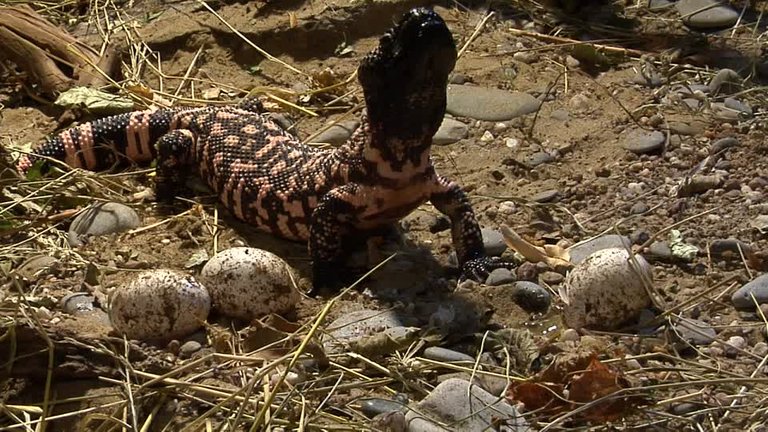
The answer, though, lies in the uniqueness of the Gila monster’s metabolism and survival mechanisms. In the wild, this particular lizard only eats 5–10 times a year.
.jpg)
Exendin-4 is also very similar to a human protein, GLP-1, which helps the body regulate how much insulin it produces. The drug created from this protein, Byetta, helps type 2 diabetics maintain healthy glucose levels.[3] It can also lead to weight loss and a decrease in appetite. Byetta is FDA approved and prescribed as a self-administered injection.
∆•7:----WAXY MONKEY FROG----√√√
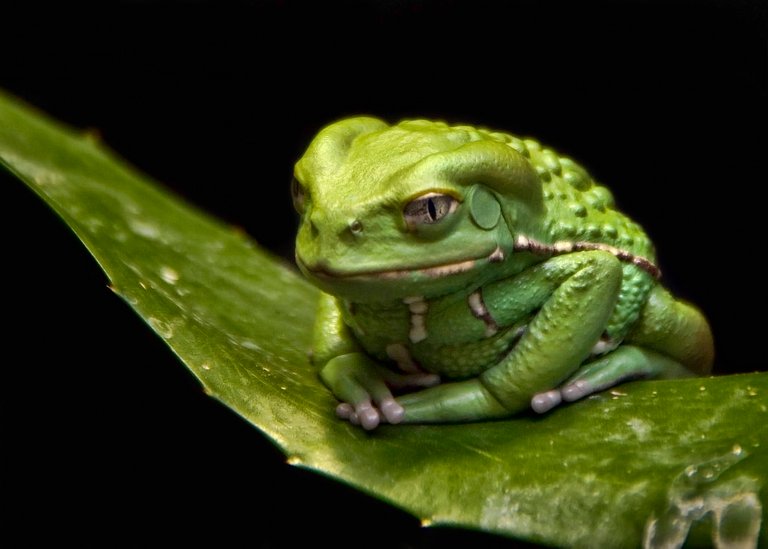
The waxy monkey frog secretes a number of proteins through its skin, including the waxy oil that has given the frog its name and allows it to reduce the amount of water lost through its skin. The frog also secretes a hallucinogenic poison which causes tachycardia, vomiting, and hyper-attuned senses.
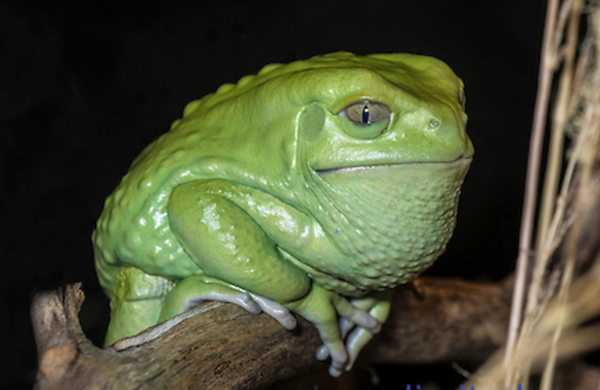
The composition of the poison is complex. But one of the identified proteins, dermorphin, is 40 times more potent than morphine as well as significantly less addictive.
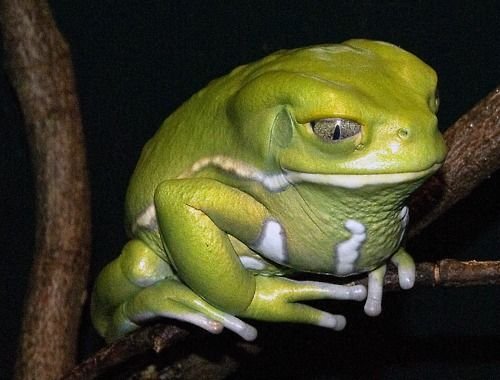
In addition to their analgesic properties, these proteins actually have the ability to limit blood vessel growth. Although that might not sound like a good thing, it turns out that it is a very good thing in cancer research.
.jpg)
After reaching a certain size, most cancerous tumors need blood vessels to get necessary nutrients and oxygen. So controlling the growth and size of the blood vessels supplying tumors could actually allow doctors to starve them to death.
∆•6:----CHILEAN ROSE TARANTULA----√√√
.jpg)
Muscular dystrophy is a genetic disease with no known cure. Every administered treatment is about managing the symptoms of the disease, which causes the body’s muscles to deteriorate until the patient is unable to move and becomes confined to a wheelchair. It’s a horrible disease that is diagnosed in childhood, dramatically reducing the expected life span of the patient.
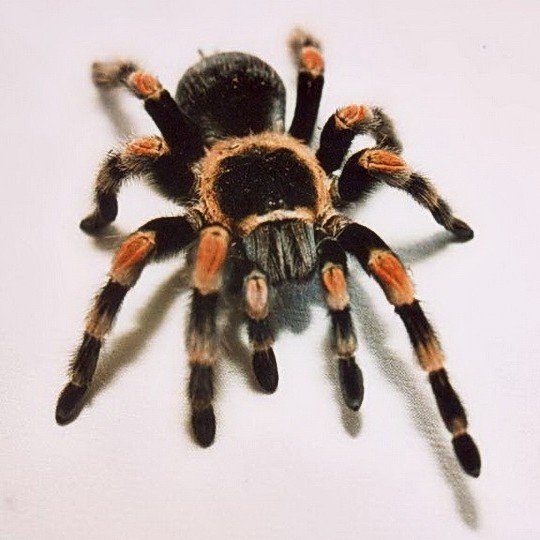
But thanks to the pet tarantula of a group of researchers, a more effective treatment might not be far off. Rosie is the name of the Chilean rose tarantula that the researchers kept as their mascot, which ultimately led them to their amazing discovery.
.jpg)
Grammostola spatulata’s venom contains a protein called GsMTx4. Through their research, the group found that this protein can stop the body from destroying its own muscle mass by cutting off certain pathways to the affected cells.
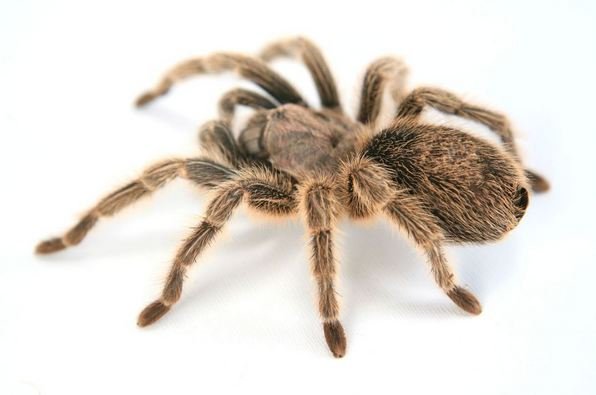
In fact, a study done on dystrophic mice found that, when treated with the protein, the mice’s strength actually increased. In addition, the protein was found to have absolutely no toxicity in mice.
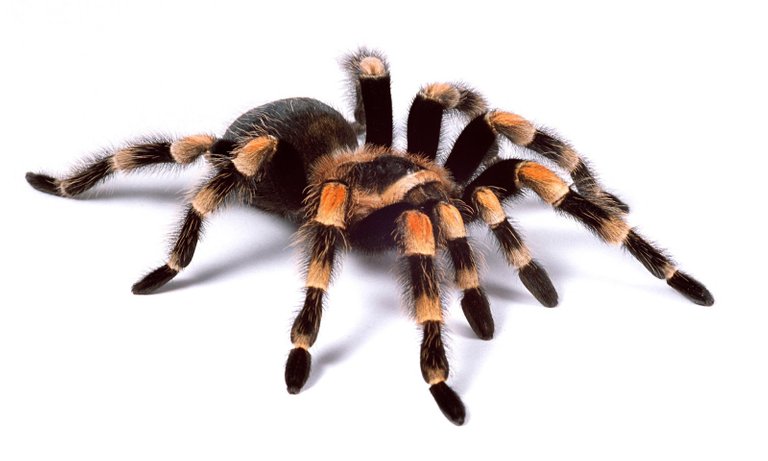
This treatment is somewhat revolutionary because it is not a genetic therapy. It treats the symptoms of the disease, not the cause. So while it is not a cure, it can increase quality of life in patients and help combat the symptoms they experience.
∆•5:----DEATHSTALKER----√√√
.jpg)
Under UV light, all scorpions glow in the dark. One particular scorpion, however, is shedding light on a completely different area: cancer treatment.
.jpg)
Commonly known as the deathstalker scorpion, Leiurus quinquestriatus is being studied for the chlorotoxin found in its venom. This toxin is unique because it attaches itself only to cancerous cells, leaving healthy ones alone.
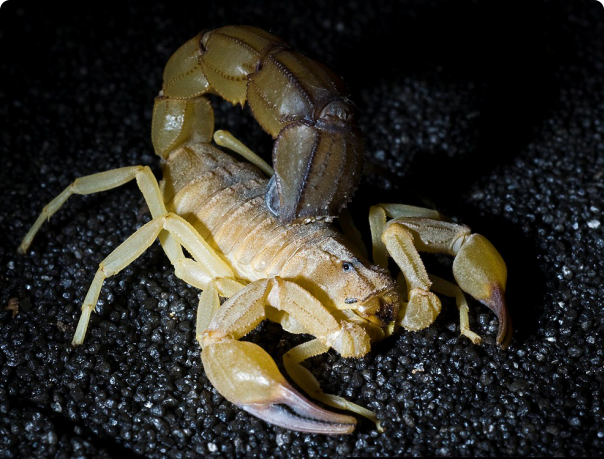
WHY IS THIS IMPORTANT?
As chlorotoxin only binds to cancerous cells, it can be used to make tumors more visible. Similar to how the scorpion itself glows under UV light, “tumor dye” can be attached to the chlorotoxin and used to illuminate the cancerous cells.

This makes tumors much easier to see for surgeons, who essentially “go in blind” when operating. Since infrared light is invisible to the human eye, surgeons still have to use a screen to see the highlighted tumors. But this method works better than the 2-D printed MRI image that is most commonly used.
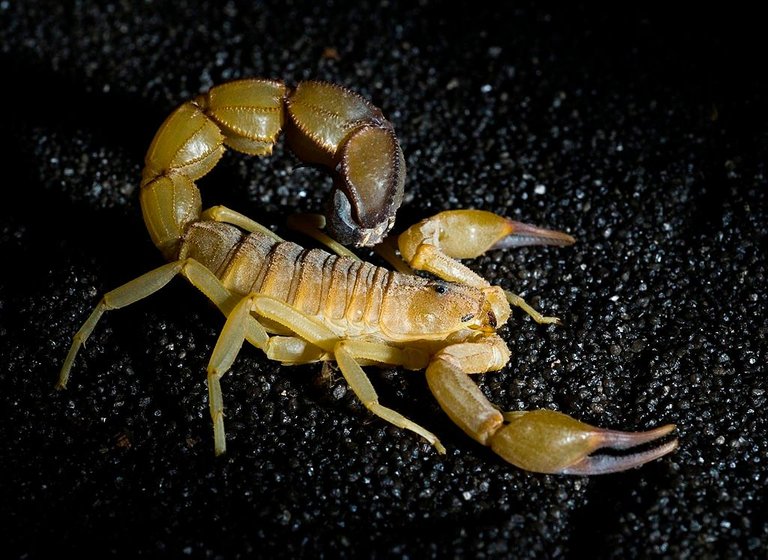
The “tumor paint” method has been used successfully in a handful of surgeries already and is slated for more tests and trials. Given a few years, we all might be able to shine bright like a scorpion.
Hi! I am a robot. I just upvoted you! I found similar content that readers might be interested in:
http://viraltop10s.com/10-killer-creatures-that-are-actually-helping-heal/
Congratulations @acecardx! You have completed some achievement on Steemit and have been rewarded with new badge(s) :
Click on any badge to view your own Board of Honor on SteemitBoard.
For more information about SteemitBoard, click here
If you no longer want to receive notifications, reply to this comment with the word
STOPNice post, i followed your account, please follow me at @mrrandy
Congratulations @acecardx! You have received a personal award!
Click on the badge to view your Board of Honor.
Do not miss the last post from @steemitboard!
Participate in the SteemitBoard World Cup Contest!
Collect World Cup badges and win free SBD
Support the Gold Sponsors of the contest: @good-karma and @lukestokes
Congratulations @acecardx! You received a personal award!
You can view your badges on your Steem Board and compare to others on the Steem Ranking
Vote for @Steemitboard as a witness to get one more award and increased upvotes!